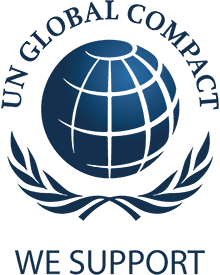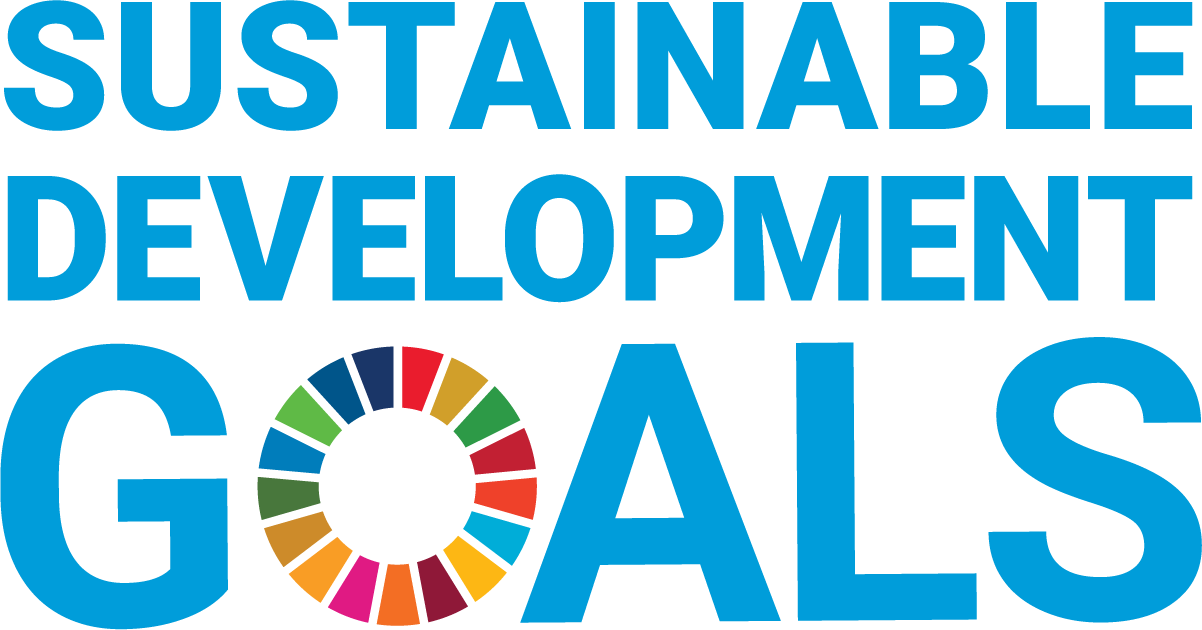
Strategy & Management
“We want Eppendorf to be synonymous with customer-centric processes, innovative technologies, and high-quality products and services to improve human living conditions.” This is how our founders, Dr. Heinrich Netheler and Dr. Hans Hinz, described the company’s purpose back in 1970. Today, our message is a succinct one: “Eppendorf exists to improve human living conditions!” All this time, the thrust of our purpose has remained the same. Within the Eppendorf Group, our goal is to continue to grow and develop so that we do not exceed the bounds of our planet’s resilience now or in the future, and to ensure that our actions are aligned with society’s needs.
Governance structures of our highest governance body
Eppendorf SE is a European stock corporation and has a dualistic management and supervisory system consisting of a management body, the Management Board, and a supervisory body, the Supervisory Board. The nomination and selection procedures for the Management Board begin with the Compensation Committee, which identifies the tasks to be accomplished and the roles required to accomplish them. According to these requirements, a profile is drawn up, which is then voted on and approved by the Supervisory Board. A recruitment agency is then commissioned to source suitable candidates. These candidates are explicitly sought also from within the company. The Compensation Committee is then presented a list of possible candidates and discusses it. Candidates for the Management Board go through two to four rounds of interviews before they are proposed to the Supervisory Board, which then makes the final decision. In the process of nominating and selecting members of the highest governance body gender diversity is also taken into account. The aim is to achieve certain quotas of women by December 31, 2026. These quotas are 33% for the Supervisory Board, 25% for the Management Board, 30% for management level 1 and 40% for management level 2. In addition, a quota of 50% women or people identifying as diverse is to be achieved for all new management positions (replacement hires or newly created positions) by December 31, 2026. This applies to management levels 1, 2 and 3. In the reporting year, the quota of women on the Executive Board was 25%, and 16.7% on the Supervisory Board.
Members of the Management Board are Eva van Pelt, Dr. Peter Fruhstorfer, Axel Jaeger and Dr. Wilhelm Plüster. Eva van Pelt and Dr. Peter Fruhstorfer have been jointly appointed as Co-CEOs with equal rights. The performance of the Management Board is reviewed yearly in two stages. During the first Supervisory Board meeting of the year, in the period from March to April, each member of the Management Board first talks individually with the Compensation Committee about the targets achieved in the previous year and on the target agreement for the current year. The results of the meetings will be presented to the Supervisory Board. The procedure is formalized and analogous to the Annual Dialogs of the employees. During the last Supervisory Board meeting of the year, in the period from September to October, the second assessment stage takes place between the Compensation Committee and the members of the Management Board with talks about the N-1 level, the so-called Direct Reports. This exchange is less formalized and above all, employee management is assessed. Findings are also shared with the Supervisory Board. Other special events and changes are also reported to the Supervisory Board.
| Members of the Management Board | Mandates at other Eppendorf companies |
|---|---|
| Eva van Pelt since 2017-10-01 Co-CEO since 2019-12-06 |
Eppendorf Holding, Inc., Board of Directors, Chairwoman Eppendorf North America, Inc., Board of Directors, Chairwoman USA Scientific, Inc., Board of Directors, Chairwoman |
| Dr. Peter Fruhstorfer since 2019-12-06 Co-CEO since 2019-12-06 |
Eppendorf, Inc., Board of Directors, Chairman Eppendorf Himac Technologies Co., Ltd., Board of Directors Eppendorf Application Technologies S.A., Board of Directors |
| Axel Jaeger since 2020-06-01 Chief Financial Officer |
|
| Dr. Wilhelm Plüster since 2014-07-01 Chief Technology Officer |
Eppendorf Manufacturing, Corp., Board of Directors, Chairman Eppendorf Lab Technologies (Shanghai) Co., Ltd., Supervisor Eppendorf (Zhejiang) Life Science Technologies Co., Ltd., Supervisor |
Members of the Supervisory Board include Philipp von Loeper, Prof. Dr. Elmar Hinz, William A. Linton, Thomas Heydler, Marlis Kripke and Peter Schmidt. The Supervisory Board is chaired by Philipp von Loeper. Prof. Dr. Elmar Hinz and William A. Linton are elected Vice Chairmen of the Supervisory Board. The Supervisory Board has the right to form committees from among its members. The Audit Committee and the Compensation Committee were set up as a result. The Audit Committee consists of Philipp von Loeper as Chairman, Prof. Dr. Elmar Hinz and Marlis Kripke. Members of the Compensation Committee include Philipp von Loeper as Chairman, Prof. Dr. Elmar Hinz, William A. Linton and Peter Schmidt. The Supervisory Board consists of four shareholder representatives and two employee representatives.
| Members of the Supervisory Board | Other important positions and obligations |
|---|---|
| Philipp von Loeper since 2010-06-24 Chairman since 2016-06-03 |
ACEG Beteiligungsgesellschaft mbH, Managing Director Kliniken Schmieder (Stiftung & Co.) KG, Supervisory Board KROENERT GmbH & Co. KG, Board of Trustees |
| Prof. Dr. Elmar Hinz since 2017-01-01 Vice Chairman since 2017-03-01 |
Hinz Verwaltungsgesellschaft mbH, Managing Director |
| William A. Linton since 2017-01-09 Vice Chairman since 2017-03-01 |
Promega Corporation, CEO Life Science and Diagnostics Association (ALDA), Director Analytical BioPharmaceutical Technology Center Institute, Director Bruker Biosciences, Director Terso Solutions, Director Marine Biology Laboratory, Board of Trustees Usona Institute, Co-Founder & Executive Director |
| Thomas Heydler since 2019-01-25 |
Noselab GmbH, Managing Director |
| Marlis Kripke since 2004-06-18 |
Eppendorf Polymere GmbH, Employee |
| Peter Schmidt since 2019-05-17 |
Eppendorf SE, Employee |
Four key issues, eight action fields
We believe it is important to put our resources to work where they are most effective in bringing about positive change. For this reason, we have established a strategic process and worked in dialogue with internal and external stakeholders within a materiality analysis to identify and prioritize the issues and action fields that are key to our sustainable business activities.
In order to define the aspects that are most important to us and form the basis of the materiality analysis, we involved internal stakeholders from various relevant departments in the process at a very early stage. The first priority was to identify the environmental and social topics on which the Eppendorf Group's business has an impact and for which the company can assume responsibility within its sphere of influence. As a result, 20 topics in different areas of corporate responsibility were identified along the value chain. In the further process, these topics had to be assessed and prioritized from a sustainability perspective (surveying stakeholders and conducting data-based impact analyses) and from a business perspective.
In this context, we conducted an online survey of approximately 850 employees worldwide. Also the owner families had their say and contributed their ideas of their future company. Furthermore, we discussed and qualitatively assessed the effects of our corporate actions in relation to sustainability - the so-called impact - with external stakeholders. Eppendorf selected these stakeholders on the basis of various relevance criteria. Among the customers, especially those that are currently placing the greatest demands on our company were in invited to participate in the dialogue. We specifically identified those companies as important suppliers who have an influence on the topic of sustainability and with whom a future cooperation in this regard makes sense.
For a quantitative assessment, impact analyses were performed where possible by means of a tool from an external provider: The input-output model is used to quantify greenhouse gas emissions and other sustainability impacts in the supply chain. For example, factors such as the extent of environmental harm we cause (measured according to external costs in euros) as well as the likelihood of causing human rights violations (measured in risk hours) can be analyzed. The tool is based, among other things, on the current input-output tables of the Organization for Economic Cooperation and Development (OECD). In addition, it contains information from various environmental and economic databases as well as international statistics – often from the respective fiscal year. In total, the data covers approximately 450 economic sectors and 49 countries.
As part of the process, we identified eight key sustainability topics along our value chain. These topics have since served as the action fields for our sustainability activities and reporting. They are divided across four key strategic issues that guide our actions and activities as a responsible company, as further detailed below.
 Climate change
Climate change
We view climate change as one of the greatest challenges of our time. In our role as a highly specialized industrial company, our aim is to harness our potential to ensure that the goal of the Paris Agreement – keeping global warming below 2°C between now and 2100 – can be met. Specifically, we have pledged to achieve climate neutrality within our own operations, and to use our own influence wherever we can to help our customers achieve climate neutrality.
Our customers have also recognized the challenges posed by climate change, and they expect the Eppendorf Group to commit to climate action and to transparent reporting on its carbon footprint. Demand for energy-efficient products and technologies is also rising across the life science sector. According to a data-based impact analysis, our products generate significant carbon emissions during the use phase. Now that we are aware of this, it is our ambition to step up our efforts to consider the energy efficiency of our products as early as possible during product development and when planning our production processes.
Our climate action fields:
The activities at our own sites can be managed comparatively quickly and well within the value chain. For the Eppendorf Group, they hold great direct potential for influencing climate change – for example, in climate-optimizing logistics and business travel, and by taking sustainability aspects into account in construction or modernization projects. In addition, we maintain business relationships with other companies in the B2B (business-to-business) sector and support them as a supplier in their own climate goals. Currently, this is the largest possible contribution on which we have a direct influence within the supply chain.
- Reduce CO2 emissions generated at our own production and administrative sites.
Among other things, Eppendorf produces and sells laboratory equipment which needs to be switched on around the clock and is therefore very energy-intensive. Due to its high impact on climate change and the resulting potential, this aspect is essential for the Eppendorf Group. This is also shown by the quantitative impact analysis.
- Reduce CO2 emissions arising at the customers’ end as a result of the use of our products
 Natural resources
Natural resources
We firmly believe that the use of natural resources must not exceed the limits of the planet’s resilience and ability to regenerate, and all our actions are guided by this belief. Our customers are committed to reducing resource use wherever possible. For example, their requirements are increasingly stringent when it comes to waste reduction and the ability to reuse and recycle products and packaging. We strive to minimize the volume of resources used wherever possible, for maximum benefit to us and our customers. With this in mind, we focus on efficient or alternative solutions for packaging and consumables, and we introduce recycling and reuse programs where possible. Our goals in the area of resources are partly financially motivated. For example, packaging that is more efficient and saves space and weight can do more than just conserve resources. It also lowers costs. This is another reason why we plan to take on a leading role in the conservation of resources in the life science sector in the future.
Our action fields in the area of natural resources:
Compared to manufacturers of plastic products in other industries, our plastic materials have a lower impact on resource consumption, due to lower mass. Also, due to strict disposal regulations there is little risk of plastic ending up in the environment. Nevertheless, we regard these products, as well as their waste, to be essential, as they represent a large portion of our sales and we can address waste reduction and prevention through our own research and development efforts without delay. In addition, the amount of waste visible to our customers has a potential impact on their satisfaction and health. Less waste means that customers are less likely to have to deal with it and are potentially less exposed to health risks.
- Prevent waste arising at the customers’ end as a result of the use of our consumables
Packaging primarily protects our products and is subject to strict quality requirements. For this reason, the Eppendorf Group relies on specific quantities and designs. Nevertheless, we can do even more to avoid the resulting waste of resources and generation of waste. By means of innovative solutions such as new designs or alternative materials, we aim to reduce the overall impact on the environment.
- Minimize waste arising at the customers’ end as a result of the packaging of our products
Even though marketing materials do not have a particularly high impact, their consumption is immediately apparent. Our goal is to question whether these means are necessary and useful and whether we can design them differently – where applicable also for business reasons.
- Reuse and recycle resources and waste arising from our marketing materials and transportation packaging
 Social compliance
Social compliance
Global value chains are growing more and more complex, resulting in a whole host of challenges. Aspects such as product quality and delivery reliability are traditional hallmarks of our supplier relationships. However, we also believe it is important to keep an eye on the big picture concerning labor conditions and respect for human rights within our supply chain as part of our own responsibilities and to take action where we can, responding appropriately if and when risks or violations occur. We expect all suppliers to comply with internationally recognized environmental and social standards. These are set out in our
Code of Conduct for Business Partners, which is based primarily on the core labor standards of the International Labour Organization (ILO), the United Nations Global Compact (UNGC), and the UN Universal Declaration of Human Rights. Systematic sustainability management for our supply chain is also a necessity if we are to meet the current and future requirements of our customers and regulatory agencies.
Assuming responsibility, particularly for compliance with regulations and standards in the supply chain, also promotes stability for the supply chain. With this in mind, we try to use our specifications and interactions as a way to motivate suppliers to develop responsible solutions for their own processes where possible.
Our action fields in the area of social compliance:
Eppendorf products are not first created in the company's own plants; value creation begins much earlier. With this in mind, we consider our impact on the living and working conditions of our suppliers' employees to be essential. We have a responsibility to ensure that the people who produce parts of our products are well. This aspect is also relevant from the company's own risk perspective. Without our suppliers, our company would not be able to act and perform.
- Ensuring that our suppliers uphold fair labor conditions
 Social well-being
Social well-being
GRI 401/3-3, 404/3-3, 405/3-3, 416/3-3
Our customers spend a lot of time performing repetitive activities with one-sided impact on their bodies so that they can drive human progress through their research. With that in mind, we are particularly focused on doing everything we can to facilitate their work by providing the most ergonomically advantageous life science products available on the market. We also believe it goes without saying that our products meet the highest standards of safety in terms of use and transportation.
To be competitive as a global manufacturer of high-quality life science products, we need employees who help us to further develop Eppendorf and remain innovative at all times. We have pledged to be the most attractive employer in our industry around the world. At the same time, we are committed to supporting lifelong learning and the growth and development of all our employees, harnessing the advantages and possibilities of the shift to new and digital technologies in the process.
We see value in the diversity of our staff. It helps us come up with fresh ideas and reexamine existing patterns and methods. This is why we welcome both the diversity and individuality of our own employees and the wealth of different cultures, worldviews and personal histories they bring with them. Each and every day, they unlock new potential and new opportunities to improve our performance capacity on the market.
Our action fields in the area of social well-being:
For Eppendorf, it has always been important to design its own products with the health of users in mind. After all, they have to use the products in the way we design them and can only have a small influence on how they affect their own well-being. Eppendorf is already leading in the field of ergonomics. With our approaches, we set standards in the industry. However, we do not want to rest on our laurels, but rather strive to maintain this position in the future. Accordingly, internal stakeholders have defined the aspect of ergonomics as a significant responsibility issue.
- Promote the safety and health of our customers during the use of our products
Our diverse employees are our most important resource: They drive Eppendorf's progress. We want to be a diverse and colorful company which does not allow any discrimination and benefits from different strengths and perspectives. Our employees should be able to develop and flourish to the best of their abilities. This is why it is important for us to support them in this and create appropriate opportunities.
- Ensure diversity and equality of opportunity at our sites and lifelong learning in the digital age
Overview of sustainability strategy & sustainability reporting
Download(XLS, 45 KB)
| Relevance within the value chain | |||||
|---|---|---|---|---|---|
| Action fields | Upstream | At Eppendorf | Downstream | Material topics & relevant GRI indicators |
Report chapter |
| Reduce CO2 emissions generated at our own production and administrative sites | Emissions 302, 305 |
Energy & Emissions | |||
| Reduce CO2 emissions arising at the customers’ end as a result of the use of our products | Emissions 302, 305 |
Energy & Emissions | |||
| Prevent waste arising at the customers’ end as a result of the use of our consumables | Resource use & waste 301, 306 |
Environment & Resources | |||
| Minimize waste arising at the customers’ end as a result of the packaging of our products | Resource use & waste 301, 306 |
Environment & Resources | |||
| Reuse and recycle resources and waste arising from our marketing materials and transportation packaging | Resource use & waste 301, 306 |
Environment & Resources | |||
| Ensure that our suppliers uphold fair labor conditions | Labor conditions at suppliers' sites 308, 407, 408, 409, 414 |
Responsibility in the Supply Chain | |||
| Promote the safety and health of our customers during the use of our products | Customer safety & health 416 |
Customer Safety & Health | |||
| Ensure diversity and equality of opportunity at our sites and lifelong learning in the digital age | Diversity and equality of opportunity Training and continuing education 404, 405 |
Employees | |||
Establishing sustainability as an integral part of the organization
To ensure that we make progress in our four key strategic issues and eight action fields, we have established an overarching organizational structure based on defined responsibilities and obligations. The structure starts with the top level of management and is then broken down within the organization as needed.
Each member of the Management Board is in charge of one of our four key strategic issues:

Social Well-Being
Eva van Pelt
Co-CEO & Chief Commercial Officer

Natural Resources
Dr. Peter Fruhstorfer
Co-CEO & Chief Business Officer

Climate Change
Axel Jaeger
Chief Financial Officer

Social Compliance
Dr. Wilhelm Plüster
Chief Technology Officer
Co-CEO & Chief Commercial Officer Eva van Pelt bears overall responsibility for the productive implementation of the strategy and for developing appropriate governance structures with an eye to sustainability. Within Axel Jaeger's Board of Management department, a sustainability team within the Sustainability & Health, Safety, Environment department works continuously on strategic and operational implementation. Every three to five years, the Management Board takes responsibility to review and redevelop the sustainability strategy. Regular network meetings, for example with Stiftung Klimawirtschaft (German CEO Alliance for Climate and Economy) promote the collective knowledge of the highest management level in the field of sustainable development.
The Sustainability & Health, Safety, Environment department at Eppendorf provides technical and professional advice and partners with others to generate new ideas. It coordinates the development of targets, measures and sustainability performance indicators along with the establishment of relevant control mechanisms. The department is responsible for ongoing monitoring of all key issues and for reporting to the Management Board. The team also oversees external reporting according to acknowledged standards and frameworks. Experts from the individual departments develop concrete measures relating to our eight action fields. When reviewing the effectiveness of impact management, the highest management level takes on the role of feedback provider, sparring partner, and decision maker. The Management Board is informed at irregular intervals by the Sustainability & Health, Safety, Environment departments about the current status of impact management within the scope of their respective responsibilities.
Guiding principles & standards
GRI 2-15, -16, -23, -24, -25, -26, -27
Everything we do is based on high ethical standards and values. This stance is also reflected in our
Code of Conduct, which applies to all employees of the Eppendorf Group. It includes a foreword by the Management Board as “tone from the top” and applies to all employees of the Eppendorf Group. The code defines our self-image as corporation and summarizes rules of conduct on topics such as safety, health and the environment. In addition, the code serves as a guide for our employees on legal issues and is the basis for our actions, for example with regard to diversity and equal opportunities, which are core values of Eppendorf. In addition, the code includes rules for topics such as bribery, conflicts of interest and protection of confidential information. Our Code of Conduct sends a clear signal that the quality of the transaction, expert advice and fair dealings with each other are always paramount within the relationships between Eppendorf and its business partners. We make decisions independently and in the interest of Eppendorf. Possible personal benefits are not taken into account in all business decisions. If a conflict of interest becomes apparent, employees shall disclose it to their manager. In case of doubt, the company makes business decisions without the persons that may be in a conflict of interest. The Code of Conduct also specifies how violations of rules are to be reported so that we can take corrective action at an early stage if a risk or misconduct is identified.
Our employees have the opportunity to contact their managers or the Eppendorf Compliance Office with questions about compliance issues. In addition, a whistleblower system was implemented in Europe in 2022 with the so-called Eppendorf Compliance Line. If desired, information about possible violations can be submitted anonymously to the Eppendorf Compliance Line. The Eppendorf Compliance Office investigates these reports and, if necessary, initiates measures to rectify any irregularities. The system is also available to external people and is being rolled out step by step worldwide in order to be able to take into account any country-specific features. It extends the possibilities within the Eppendorf Group to point out and remedy possible misconduct. All stakeholders can report (potentially) unethical, illegal and irresponsible actions around the clock via a protected channel, which has been specially set up and is accessible via the corporate website. Information on suspected questionable conduct may also continue to be submitted by e-mail or letter, in a face-to-face meeting, and by telephone. We investigate every reported indication. If the allegation proves to be justified, reasonable legal remedies will be taken. Within the short time of the implementation of the new reporting channel in the year under review, none of the reported indications turned out to be justified.
As of January 1, 2023, it is possible to use the Compliance Line as complaints system within the meaning of the German Supply Chain Act (LkSG). It is ensured that the design and communication as well as the further development of the processes meet the needs of the target groups of the process. For example, it will be investigated whether further language settings of the Compliance Line are necessary or whether the information is available in the languages that are important for relevant target groups of the Eppendorf Group. In the future, we also want to develop performance indicators to better measure the effectiveness of this mechanism. Eppendorf will review the effectiveness on the basis of the effectiveness criteria of the UN Guiding Principles.
Eppendorf offers support in the implementation of individual topics of the corporate guidelines and practices, for example, in the form of training for employees. In addition, our employees can address questions directly to the authors of internal guidelines or to the responsible departments.
For our suppliers, we have created the Code of Conduct for Business Partners. We expect our suppliers to make decisions related to the business with Eppendorf exclusively on the basis of objective criteria. Any conflicts of interest with personal and business interests or other activities, including those of relatives or individuals and entities otherwise closely associated with the company, are avoided from the very outset.
In all our activities, we also embrace the precautionary principle, striving to take precautions to prevent or mitigate any and all conceivable adverse impacts on the environment or human health. The same principle also underlies our Environmental Policy, which sets out our requirements for environmental protection and the protection of health and occupational and process safety. It guides us in various factors, such as careful handling of hazardous materials and water pollutants, and sets rules for safe storage of these substances.

To underscore the strength of our commitment to sustainability, we signed the UN Global Compact in January 2022. It is viewed as the world’s largest and most important initiative for responsible corporate governance. Participating companies voluntarily pledge to observe ten principles across the domains of human rights, labor standards, environmental protection and the fight against corruption, all based on key UN conventions. Participants are obligated to report annually on their progress in their own spheres of action. The sustainability report serves as the basis for the Communication on Progress Report to be submitted to the UN Global Compact.
The 17 United Nations Sustainable Development Goals (SDGs) also guide us in our actions geared toward sustainability. We recognize the SDGs in full as a shared blueprint for peace and prosperity for people and the planet. After all, the business world – with its innovative drive and power to invest – will have to play a crucial role if we are to meet these targets.
Our contribution to the SDGs
The focus of our contribution to the Sustainable Development Goals of the United Nations is on the sub-targets of the SDGs, which we can influence most effectively in the context of our business activities. The SDG index included in the report annex lists the sub-targets of the focused SDGs.
Details on how we contribute to the respective SDGs are shown in the subsections of the chapters of our sustainability report:

